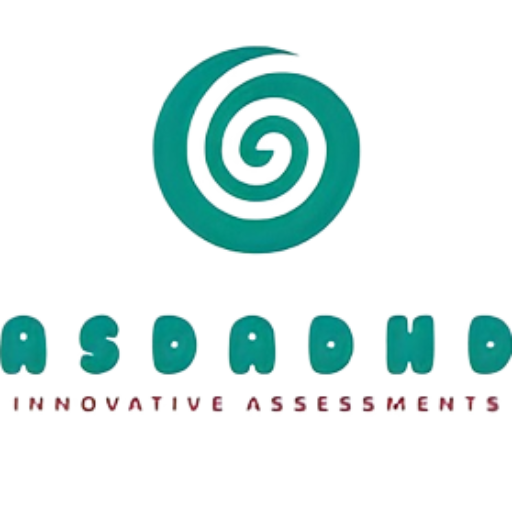8 Jun, 2024 | anishdr | No Comments
ADHD Medications and Alcohol: Essential Guide for Parents and Teens | ADHDASDdoctor
Introduction:
Managing ADHD can be challenging, and understanding the risks associated with alcohol use while taking ADHD medications is crucial. This guide provides detailed information on the potential interactions, side effects, safety tips, and advice on what to do if alcohol is consumed while on ADHD medication.
Risks of Mixing ADHD Medications and Alcohol:
Both stimulants and non-stimulant ADHD medications can interact dangerously with alcohol. Here’s a breakdown of the potential risks:
Stimulant Medications
Common Stimulants:
- Adderall (amphetamine and dextroamphetamine)
- Ritalin (methylphenidate)
- Vyvanse (lisdexamfetamine)
Potential Interactions:
- Cardiovascular Risks: Both stimulants and alcohol can increase heart rate and blood pressure, leading to heightened cardiovascular stress and potential complications, especially in individuals with pre-existing heart conditions【5†source】【6†source】.
- Impaired Judgment and Decision-Making: Stimulants are designed to improve focus and reduce impulsivity, while alcohol impairs judgment. This combination can result in risky behaviors and accidents【6†source】.
- Rapid Medication Release: Alcohol can cause certain long-acting stimulants to be released too quickly into the body, potentially leading to overdose and severe side effects. For example, Ritalin LA can release 98% of its active ingredient within the first hour when combined with alcohol【5†source】.
Non-Stimulant Medications
Common Non-Stimulants:
- Strattera (atomoxetine)
- Intuniv (guanfacine)
- Kapvay (clonidine)
Potential Interactions:
- Central Nervous System Depression: Combining alcohol with non-stimulants like clonidine and guanfacine can increase the risk of dizziness, fainting, and central nervous system depression, leading to dangerous falls and injuries【5†source】.
- Liver Metabolism: Both alcohol and medications like Strattera are metabolized in the liver, which can increase the risk of liver strain and toxicity【6†source】.
Mental Health Considerations
Alcohol can exacerbate mental health issues such as anxiety and depression, which are already common among individuals with ADHD. This combination can lead to increased emotional instability and worsened symptoms【6†source】.
Safety Tips for Teens:
- Consult with Healthcare Providers: Always discuss with a doctor before consuming alcohol while on ADHD medication. They can provide specific guidance based on the individual’s health status and medication regimen.
- Understand Side Effects: Be familiar with the side effects of the prescribed medication to identify any unusual reactions when consuming alcohol.
- Monitor Alcohol Intake: If moderate alcohol consumption is approved by a healthcare provider, it should be tracked carefully to avoid overconsumption and binge drinking.
- Maintain Open Communication: Ensure that friends and family are aware of the potential risks and can provide support if needed.
- Regular Medical Check-Ups: Schedule regular check-ins with a healthcare provider to monitor the effects of alcohol and medication on overall health.
What to Do if Alcohol is Consumed While on ADHD Medication:
- Stay Hydrated: Drink plenty of water to help your body process the alcohol and medication.
- Avoid Further Alcohol Consumption: Stop drinking alcohol immediately to prevent exacerbating the interaction.
- Monitor Symptoms: Keep an eye on how your body reacts. Watch for signs of dizziness, heart palpitations, excessive drowsiness, or unusual behavior.
- Seek Help if Necessary: If you experience severe symptoms such as extreme dizziness, fainting, rapid heartbeat, or difficulty breathing, seek medical help immediately.
- Inform a Trusted Adult: Let a parent, guardian, or another trusted adult know about the situation so they can assist if needed.
Helpful Tips for Teens:
- Plan Ahead: If you know you will be in a situation where alcohol is present, plan ahead to avoid temptation. Consider bringing non-alcoholic beverages to social events.
- Educate Your Peers: Help your friends understand why you cannot mix alcohol with your medication. Peer support can be a powerful tool in managing your health.
- Stay Informed: Keep yourself updated on the latest information regarding ADHD medications and alcohol interactions.
- Develop Healthy Coping Mechanisms: Engage in activities that help manage stress and impulsivity, such as exercise, hobbies, or talking to a friend.
Additional Resources for Parents and Teens:
- Drugs.com on ADHD Medications and Alcohol
- Healthline on Alcohol and ADHD
- ADHD Guide on Safety Tips
- WebMD on ADHD Medication Interactions
- Mayo Clinic on ADHD Medications
Conclusion:
Managing ADHD with medication requires careful consideration, especially when it comes to alcohol consumption. By understanding the potential risks and following safety guidelines, teens and their families can make informed decisions to ensure effective management of ADHD while minimizing health risks. Always consult with healthcare providers for personalized advice and support.

Write Reviews
Leave a Comment
No Comments & Reviews